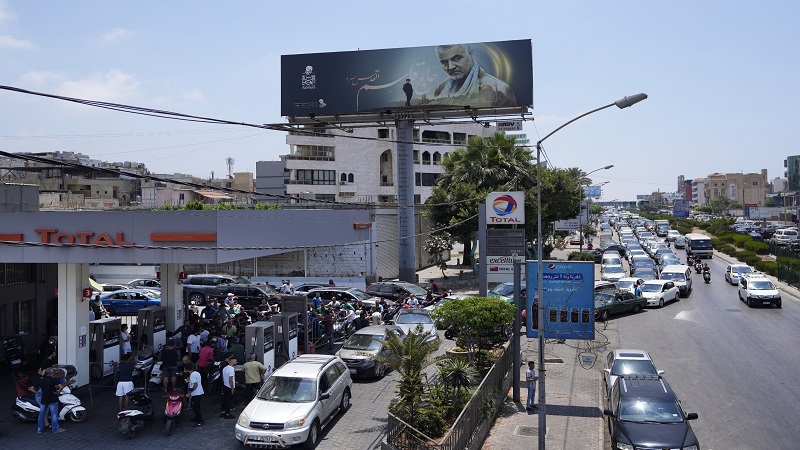Lebanon’s energy ministry dealt a serious blow to the already besieged pocketbooks of the country’s struggling consumers on Tuesday by raising fuel prices by more than 35 percent.
The move was widely expected after the government effectively slashed fuel subsidies last week as it struggles to deal with a surge in global commodity prices and an ever-deepening economic and financial crisis.
The energy ministry said the average price of 20 liters (roughly 5.5 gallons) of 95-octane gasoline has gone up by 35 percent to 61,100 Lebanese pounds ($4 at parallel market exchange rates), while diesel prices have shot up by 38 percent to about $2.7.
The price hikes will pile even more pressure on Lebanese consumers both at the pumps and elsewhere because fuel price inflation feeds through the broader economy, triggering price spikes for other goods and services.
Experts have warned that cutting subsidies is risky while Lebanese households are wrestling with decimated purchasing power and growing poverty.
The country’s currency, the lira, has lost some 90 percent of its value on the parallel market since October 2019, when protests over political sclerosis and economic hardships first swept the nation.
The World Bank warned earlier this month that Lebanon’s economic crisis could rank as one of the top three worst the world has seen over the past 150 years.
The country’s gross domestic product (GDP) – which measures the total output of goods and services – nosedived from close to $55bn in 2018 to an estimated $33bn last year, with GDP per capita plummeting by about 40 percent.
Frustration with deteriorating living standards continues to spawn protests. An ongoing political deadlock has prevented the formation of a government for months, and those in power have failed repeatedly to mount a credible financial reform blueprint needed to unlock billions of dollars in desperately needed international aid.
Long queues formed at petrol stations and fights – including shootings – broke out as people tried to hoard fuel ahead of the expected price hikes.
The United Nations warned that lifting subsidies could cause a “social catastrophe”, given the lack of government services and financial assistance to help struggling households.The country is also experiencing medicine shortages and can barely keep the lights on.
Source: Al Jazeera






 WhatsApp us
WhatsApp us 

